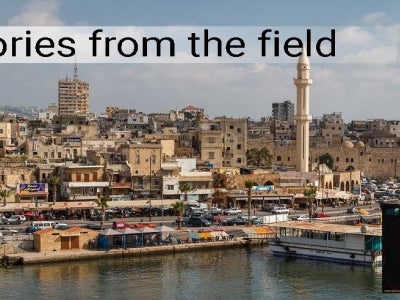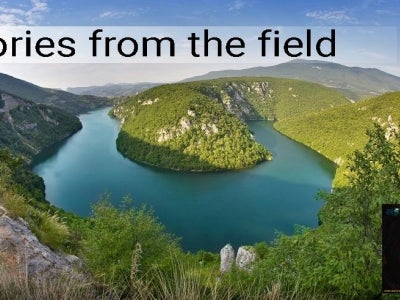PRESS RELEASE

TT-HP_0.jpg
Technology Transfer Success Stories: GEF and the Poznan Strategic Program
Cancun, MEXICO, December 3, 2010--- The Global Environment Facility (GEF), the world’s leading public environment fund dedicated to developing countries Friday said it is ready to dramatically expand its technology transfer program to meet a growing need for commercially-proven, low carbon choices.
GEF is the only multilateral institution that has financed technology transfer. As an operating financial mechanism of the United Nations Climate Change convention, the parties gave GEF the mandate to expand and support technology transfer, and through their guidance GEF supports technology transfer in both mitigation and adaptation.
Now at the beginning of a dramatically increased funding cycle, the GEF in partnership with countries is ready to build on its nearly 20 years of experience to implement a long-term plan on technology transfer, if agreed by the parties.
This could include involving technical assistance, training, information sharing, knowledge management to catalyze investments, taking into account the specific functions as reflected in international climate change discussions. Among the opportunities GEF is poised to consider under Convention guidance includes conducting pilot priority technology projects for mitigation and adaptation to foster innovation and investments.
“With close to two decades of experience under its belt, the GEF has evolved into the largest public-sector funding source for the transfer of environmentally sound technologies and has supported technology transfer activities in almost 100 developing countries, “ said Dr. Robert Dixon, GEF climate change and chemicals team leader. “ Our current project portfolio, upon completion, is expected to eliminate more than 2.7 billion tonnes of CO2 emissions. Along the way, we have generated a wealth of knowledge on technology transfer, in partnership with the GEF Agencies as well as the countries.”
With this background, two GEF partners shared their own experiences supporting technology transfer in partnership with countries.
Salvador Herrera, the deputy executive director of the civil society group CTS Mexico (Center of Sustainable Transport), spoke on GEF supported award winning sustainable transport initiatives in Mexico.
“Our mission is to catalyze sustainable mobility solutions that improve the quality of life in Mexican cities, “ he said. “Reducing emissions from the transport sector is crucial, as it contributes to 23% of energy-related CO2 emissions.
Herrera outlined the successes with the “Metrobus” Bus Rapid Transit system in Mexico City that has over the life of the program has adapted to the needs of its passengers. The impact of the system has been dramatic, in 2010 475,000 passengers per day were using the system; 85,000 tons of CO2 emissions reduced; 30% less road injuries and fatalities and travel time reduced 30% per trip.
Under the project, cleaner-burning vehicles were tested on these special corridors using environmentally friendly technologies, including compressed natural gas and hybrid diesel – electric. In addition, the project encouraged greater use of sidewalks and bicycles for non-motorized transport throughout the city. This important investment is part of a comprehensive climate change action plan at the city level, also developed with the support of the GEF.
Speaking from an implementing agency perspective, Martin Krause, Team Leader of Environment & Energy at the United Nations Development Programme’s Asia-Pacific Regional Center focused on the
small-scale energy efficiency initiatives that UNDP has spearheaded and replicated in Asian countries with GEF support.
Using Vietnam as an example, Krause noted that small and medium enterprises are a critical part of the rapidly growing country’s economy. However, their inefficient use of energy not only narrows profit margins, but also contributes to Vietnam's swift increase in CO2 emissions. To help green these businesses, with funding from the GEF, UNDP and the Government of Vietnam are helping raise awareness among managers, also providing technical and financial support to install energy-efficient technologies. The initiative promotes energy conservation in five key sectors: brick, ceramics, textiles, paper production and food processing.
“Currently, small and medium enterprises are becoming the driving force of the economy and contribute greatly to job creation,” said Krause. “But the predominant use of out–of-date equipment, lack of awareness and inadequate financing options for investment hamper the production process – and the environment. This is why this initiative comes at a crucial time.”
In the past four years the project has supported more than 400 businesses, resulting in cumulative energy savings of 156 ktoe (kilo tons oil equivalent) in the five priority sectors.
###
About the Global Environment Facility
The Global Environment Facility (GEF) unites 182 member governments — in partnership with international institutions, nongovernmental organizations, and the private sector — to address global environmental issues. An independently operating financial organization, the GEF provides grants to developing countries and countries with economies in transition for projects related to biodiversity, climate change, international waters, land degradation, the ozone layer, and persistent organic pollutants. These projects benefit the global environment, linking local, national, and global environmental challenges and promoting sustainable livelihoods.
Established in 1991, the GEF is today the largest public funder of projects to improve the global environment. The GEF has allocated $9.2 billion, supplemented by more than $40 billion in cofinancing, for more than 2,700 projects in more than 165 developing countries and countries with economies in transition. Through its Small Grants Programme (SGP), the GEF has also made more than 12,000 small grants directly to nongovernmental and community organizations, totaling $495 million.
For more information: www.thegef.org
Media contact: Maureen Lorenzetti, sGEF Spokesperson +1 (202) 352 3572; mlorenzetti@thegef.org
Media Contacts
Alexandre Pinheiro Rego
Senior Communications Officer
arego@thegef.org
GEF Secretariat
1899 Pennsylvania Ave, NW
Washington, DC 20006 USA
communications@thegef.org


